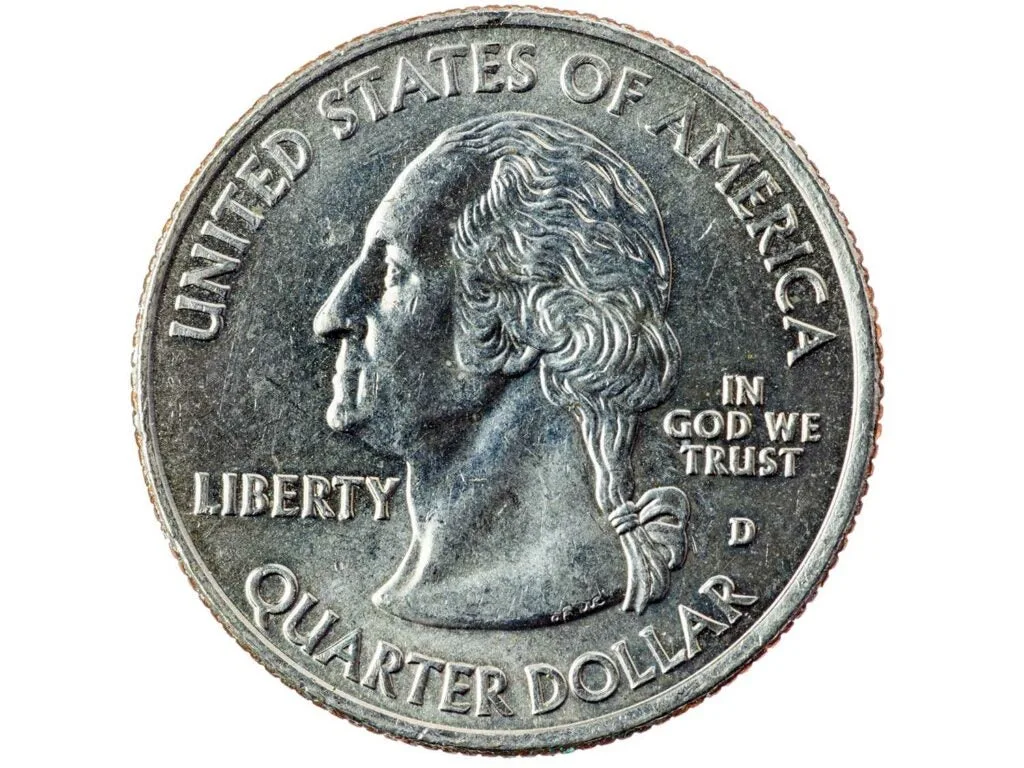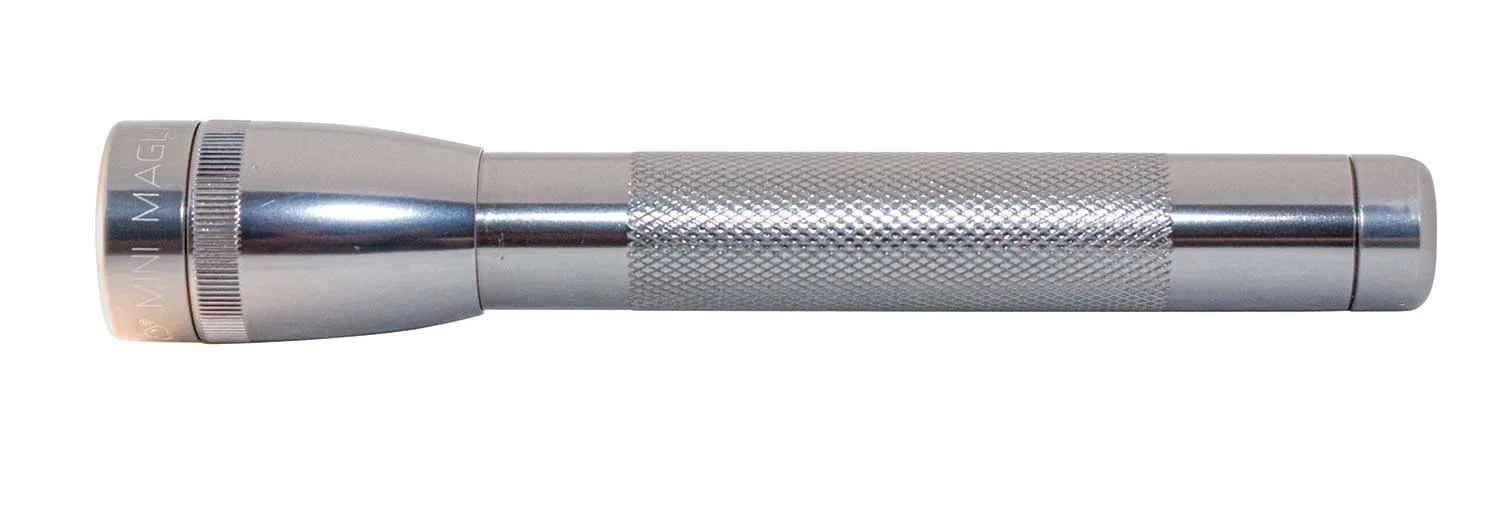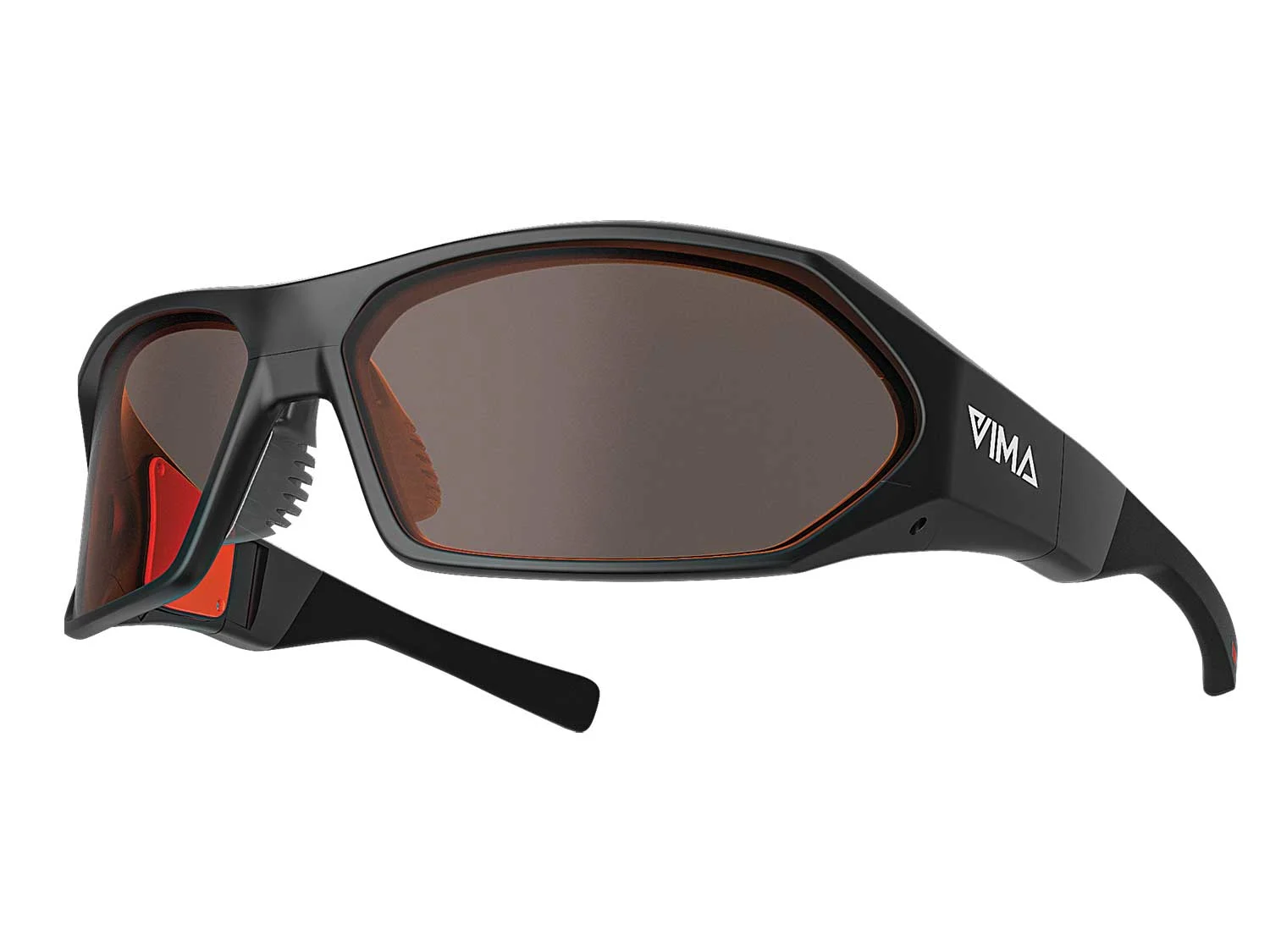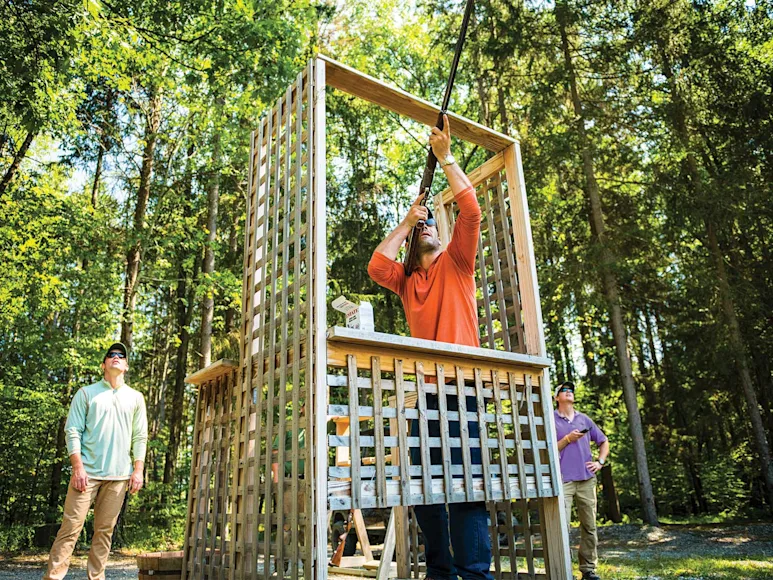_We may earn revenue from the products available on this page and participate in affiliate programs. Learn more ›
_
There’s more than one reason sporting clays is called “golf with a shotgun.” The mental demands of golf and shotgun shooting—whether it’s trap, skeet, sporting clays, or hunting—are uncannily similar. So are some of the instructional techniques, from swing thoughts to training aids. Observing golf from a safe distance so it doesn’t get its hooks into me, I can only envy the number of gadgets and hacks available to golfers: Spray athlete’s-foot powder on the club face to see where you’re striking the ball, swing a knotted towel, hit a basketball with a lightbulb changer…. They’re endless.
Shooters don’t have as many training aids, and some are worthless. (Generally, anything that goes on the muzzle of your gun will only make you look at it, which we want to avoid.) But there are some very good ones. Here, in the best golf-coach spirit, is a collection of nine training aids and instructions on how to use them to improve your shooting.
1. Check Your Cheek Weld With a Quarter

A quarter can help keep you from lifting your head off the stock. Andrew Duke/Alamy
Cure head-lifting for 25 cents. Start with a pre-mounted gun, slide a quarter between your cheek and the stock, then shoot a target. Concentrate on keeping your head on the gun as you swing. If the quarter falls during the shot, you lifted your head.
2. Use A Yardstick to Improve Your Shotgun Mount
When you mount a shotgun, the front hand leads the way, pushing the muzzle to the target. When you mount by raising the back hand first, the muzzle dips, pulling the gun off line. Have someone—carefully and safely—hold a yardstick parallel to the ground an inch or two below the barrel of your gun. Call for a target, mount, and shoot. If you dip the muzzle, you’ll hear a click when the barrel hits the stick.
3. Practice Your Shotgun Mount and Swing at Home With a Maglite

Mini Maglite Flashligh Jordan Eisfelder/Alamy
fits in the muzzle of a 12-gauge. Competitive shooter and instructor Andy Duffy suggests covering the lens with paper and making a pinhole in the center to create a laserlike beam. Slide the light into the muzzle. Then mount and swing along the seam of the ceiling in a room. Duffy’s daily practice routine is 10 left-to-right swings, 10 right-to-lefts, and 10 down to up along a seam on the wall. If he makes a move that isn’t perfect, he starts over. The drill ends after 30 consecutive perfect mounts.
4. Use a BB Gun To Stop Aiming

Daisy Outdoors Redy Ryder BB Gun Daisy Outdoors
If you’re a habitual aimer or you want to learn to shoot with both eyes open, remove the rear sight from a Daisy Red Ryder
, then cut off the front blade and practice your instinctive shooting. Start with pingpong balls on the ground at 8 to 10 feet and work your way up to hand-thrown targets. Extend the index finger of your front hand along the magazine tube, and think about pointing it at the target instead of aiming the gun. Drilling has never been so much fun.
5. Use Tracker Loads To See Where Your Shot Travels
Where your shot went is much less important than why it went where it did. That said, sometimes your form is perfect, but you read the line or the lead wrong. Winchester’s TrAAcker loads
, with their weighted, visible wad that travels with the shot, can help. I have used them to 60 yards, walking my shots to the right lead on a curving, falling target that had me flummoxed. TrAAckers come with black or orange wads. Black is more striking and works best against an open sky.
6. Get an Anchor Point For Your Shotgun Stock
The Anchor Point is like a bow’s kisser button for your shotgun. Made of soft silicone, it sticks to your gunstock. When you mount the gun correctly, you’ll feel the Anchor Point touching the corner of your mouth, telling you the gun is properly aligned. Put one on, and practice mounts with your eyes closed. Shoot with it, making sure you feel it through the shot, until after the target breaks, to be sure you didn’t lift your head or pull the stock away from your face on a crossing target.
7. Watch Other People When They Shoot Clay Targets
When you shoot practice rounds, make use of every target. Shoot yours, but look at other people’s birds too. Really focus on them. See parts of the target, not the whole. Look at the ring around the bottom; try to see the bird spinning. It’s much easier to hone your focus on a target when you’re not wrapped up in trying to shoot it.
8. But a ShotKam to Review Your Shots
is a gun-mounted camera that’s simple enough even for me to use. It gives a close-up, slow-motion view of the target and a dot indicating where the gun is pointed. Reviewing footage of your shots reveals errors like muzzle dipping, letting targets get past your muzzle, or stopping the gun and missing behind. Watching your hits also builds confidence and imprints “sight pictures” in your mind.
**Read Next: How to Shoot Trap, Skeet, and Sporting Clays
**
9. Use Strobe Glasses For Practicing Shots

VIMA REV Tactical glasses VIMA
incorporate a strobe that flicks on and off, interrupting your vision and forcing your eyes to work harder and your subconscious to function with less visual input. Professional football, basketball, and baseball players train with Vima Revs, as do several top shooters. One is David Radulovich, who credits them with improving his ability to pick up a target sooner and stay focused on it longer. He puts strobe glasses on students who keep looking at the gun. He says because the Vima Revs make it difficult to see the target, the students have to focus harder and forget to look at the bead.


